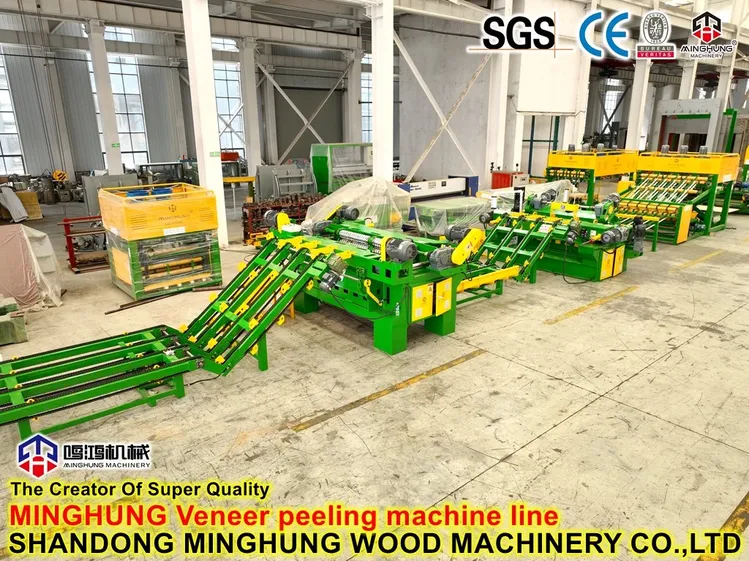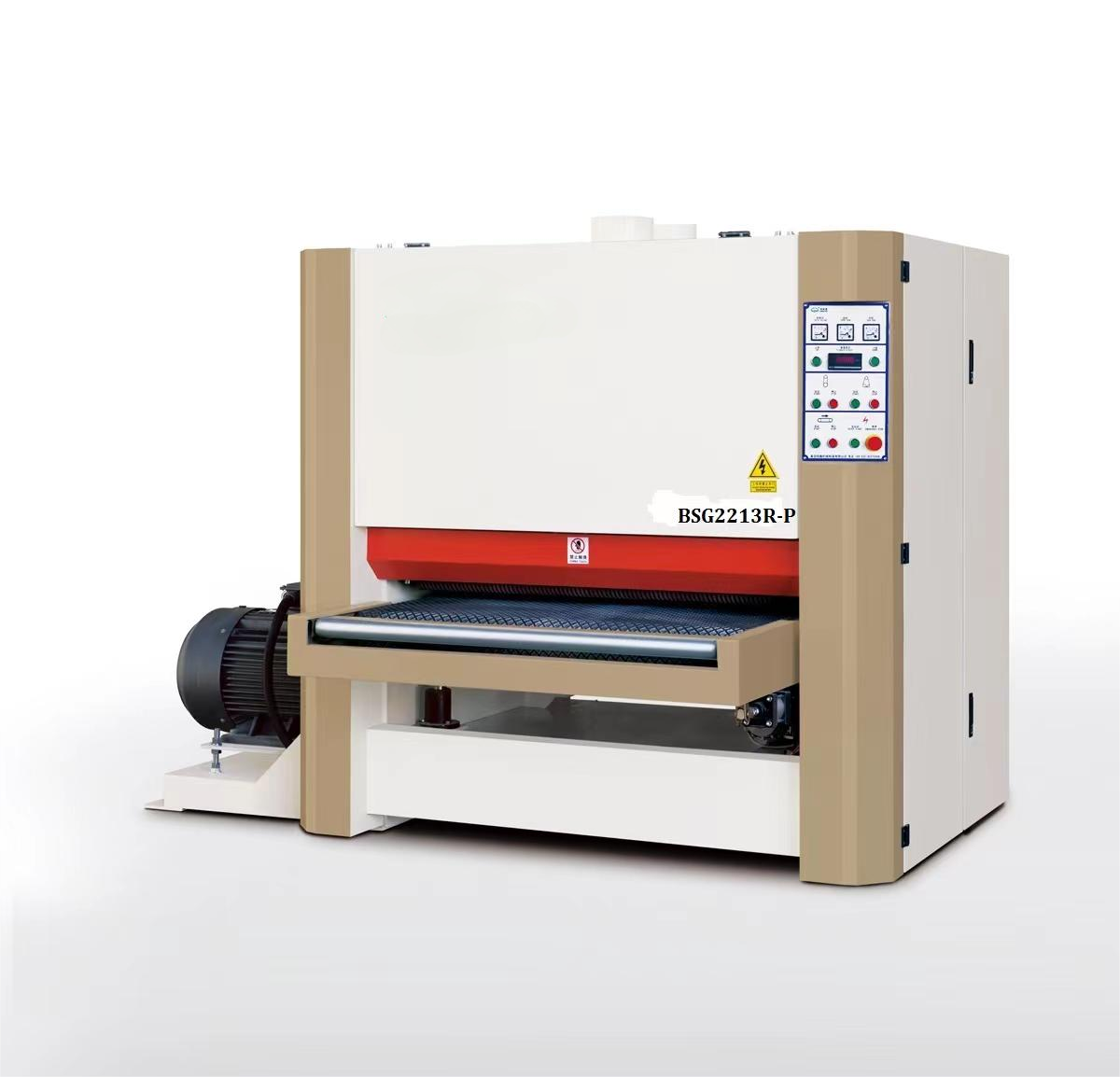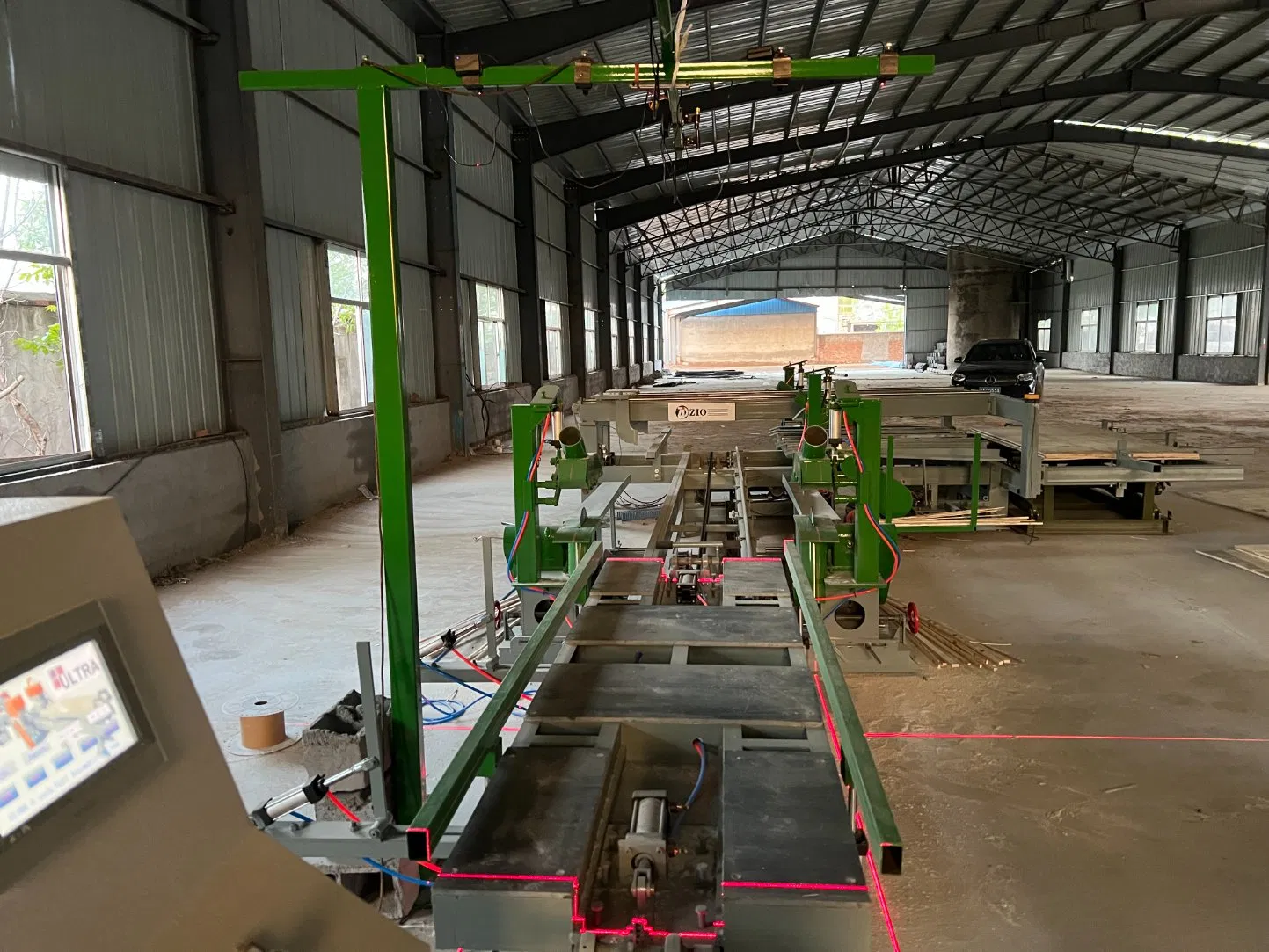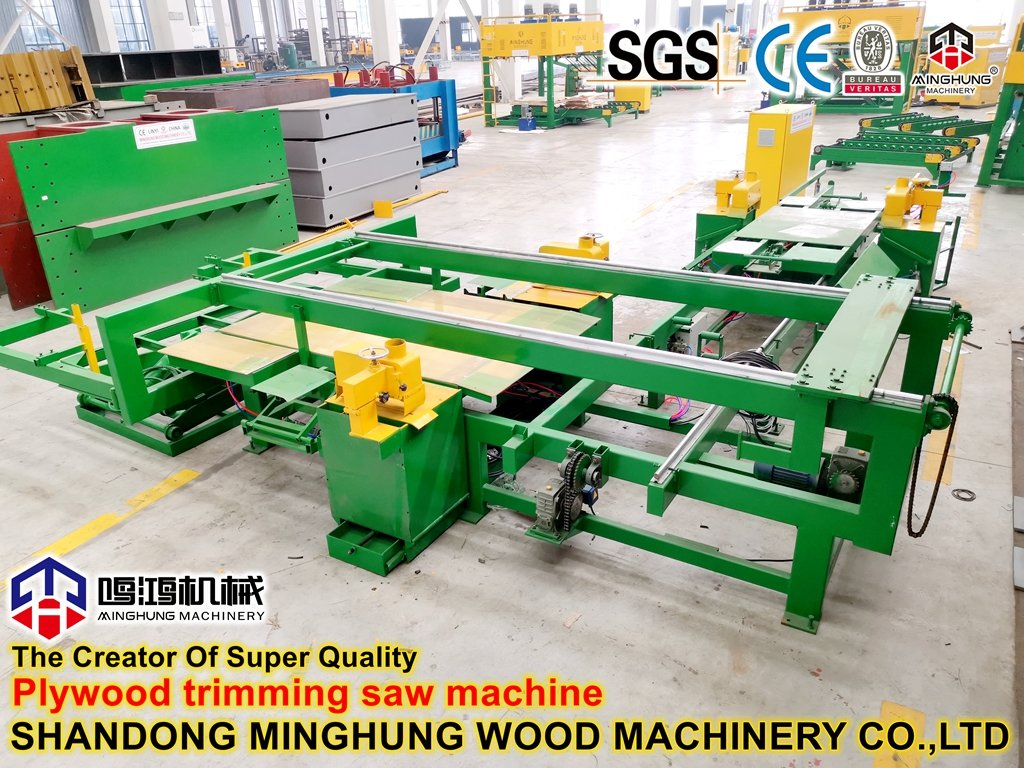Chinese plywood machines are widely recognized for their affordable price, stable performance, and fast customization. Backed by a complete industrial supply chain and decades of experience, they offer great value, especially for factories in Asia, Africa, South America, and other developing markets.
1. China’s Plywood Production and Industry Experience
China is the largest plywood producer and exporter in the world, with an annual output of over 180 million cubic meters, accounting for more than 60% of global production. Over the past 20+ years, China’s plywood industry has grown rapidly, now with more than 10,000 factories across the country.
This huge market has strongly supported the development of plywood machinery in China. In the past, many machines had to be imported, but now over 95% of equipment is made domestically. Most machines are independently developed and mass-produced by local manufacturers, with better technology and strong ability to customize for different customer needs.
Today, China has a complete supply chain for plywood machinery, covering every step of production — debarking, rotary peeling, veneer drying, glue spreading, core composing, hot pressing, and cutting. This means faster delivery, better coordination, and ongoing upgrades in machine quality.
Because plywood factories in China often focus on cost control, while also expecting higher automation, efficiency, and environmental performance, machine builders are pushed to:
- Improve quality and precision
- Save energy and reduce waste
- Offer better after-sales service and remote support
- Keep prices reasonable while increasing value
Thanks to this, Chinese plywood machines today are well-designed, accurate, stable, and cost-effective. They are now exported to many countries in Asia, Africa, South America, and the Middle East, and have won the trust of users around the world.
In short, the fast growth of China’s plywood industry has helped improve plywood machinery. And better machines have helped the plywood industry grow even more. This shows that Chinese plywood machines are reliable and worth choosing
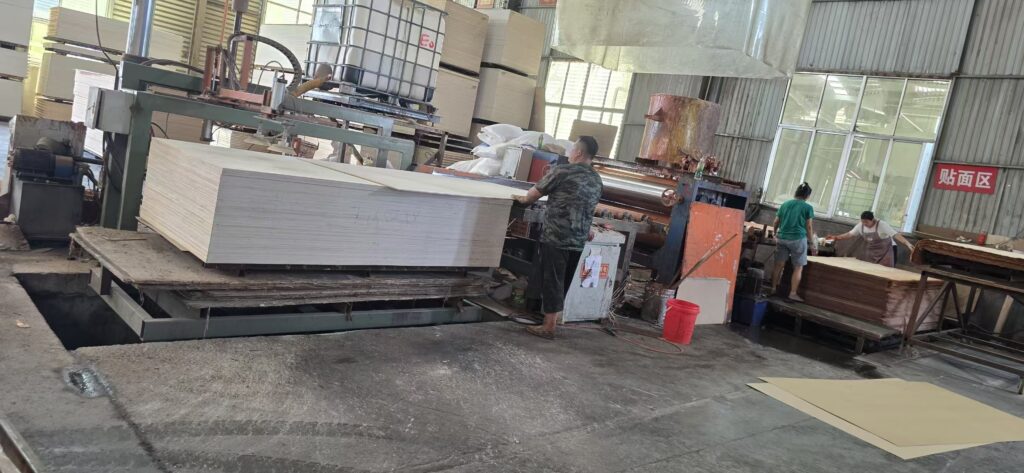
2. China’s Machinery Manufacturing Keeps Improving
In recent years, China’s machinery industry has made big progress. With the use of automation and smart technologies, machines made in China have become more precise, stable, and durable.
At the same time, China’s ability to innovate has grown stronger, and the country has become the world’s top producer of machinery by total output value, staying in the number one position for several years.
Thanks to this overall improvement in China’s machinery industry, the quality of plywood machines has also greatly improved — becoming more reliable, efficient, and competitive in the global market.
Here is the polished and easy-to-understand English version of your paragraph:
3. Smart Technology is Rapidly Improving
After years of development and export experience, Chinese plywood machinery manufacturers have not only learned from advanced international technologies but also made their own progress. Today, the level of automation, precision, and stability in Chinese plywood machines has improved significantly.
Many machines are now equipped with PLC (Programmable Logic Controller) and DCS (Distributed Control System) to support automatic control and smart integration of the whole production line. For example:
- Full-process smart production lines can now handle everything from log debarking, peeling, drying, panel jointing, paving, and hot pressing to final cutting.
- Real-time monitoring systems collect data during production to track quality and send alerts if there are any problems, helping reduce human errors.
- Some advanced factories use IoT (Internet of Things) technology to monitor machine status remotely, carry out maintenance, and diagnose issues. They also use data analysis and smart algorithms to control key hot-pressing parameters like temperature, time, and pressure—saving energy and improving efficiency.
These smart machines are widely used in both domestic and overseas markets and have built a strong reputation.
Chinese plywood equipment is now moving from basic mechanical automation to digital, connected, and intelligent manufacturing. Smart machines help boost production efficiency, improve product quality, reduce energy use, and lower labor and maintenance costs. Looking ahead, with the integration of AI, big data, and the industrial internet, Chinese plywood machines will become even smarter and help the industry move toward high-end intelligent manufacturing.
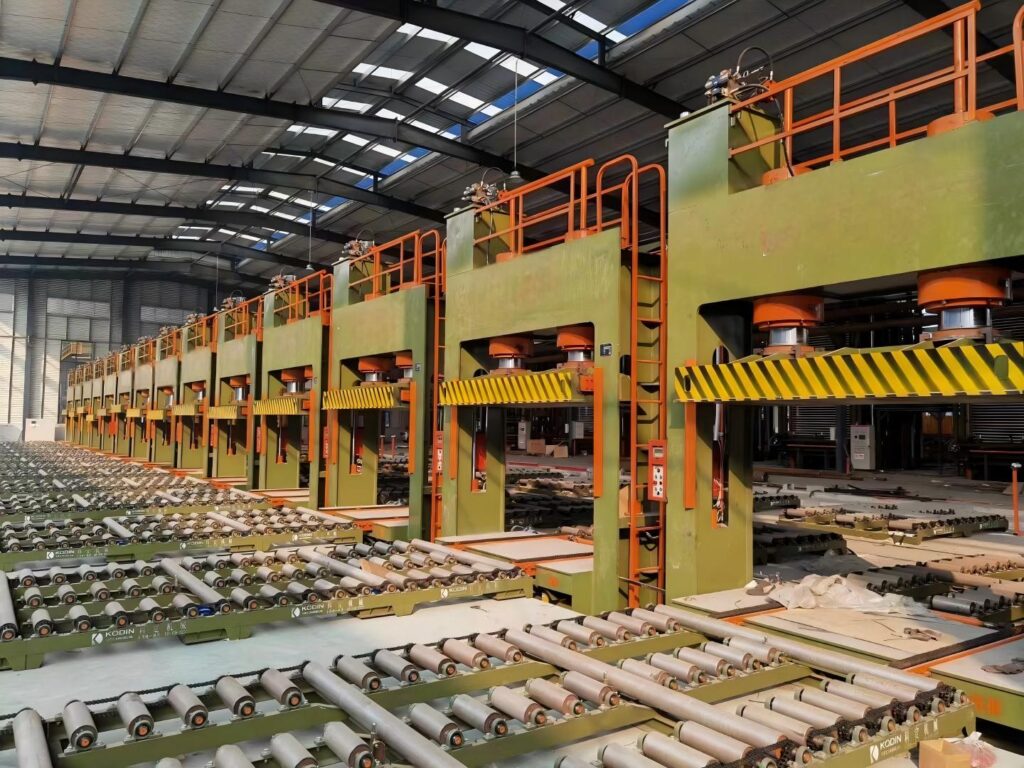
4. Complete Range of Machines and Full Production Lines
China offers a wide variety of plywood machinery, including:
- Single machines: rotary veneer peeling machines, veneer dryers, glue spreaders, hot press machines, cold press machines, edge saws, sanders, panel jointers, paving machines, putty machines, and more.
- Fully automatic production lines: from log debarking, peeling, drying, core composing, paving, hot pressing, sanding to final cutting—China provides complete solutions for each step.
Machines can be used to produce different board types such as Commercial plywood, construction formwork, OSB plywood, MDF plywood, PVC boards, WPC boards, blockboards, and bamboo plywood.
China’s machinery covers almost all processes involved in plywood production, and users can flexibly choose and combine equipment based on their needs.
5. Cost Advantage
China has a strong manufacturing foundation and relatively low labor costs. Together with a complete industrial supply chain—from raw material processing and machine manufacturing to automation integration and after-sales service—these factors give Chinese plywood machines a significant price advantage.
Compared to similar machines from Europe, the US, or Japan, Chinese equipment with the same functions usually costs only one-half to one-third of their price.
6. Short Delivery Time and Strong Customization Ability
China has abundant skilled labor and a complete industrial supply chain. After many years of market experience, manufacturers have gained rich knowledge in design, production, and assembly. This helps them quickly solve problems during manufacturing and testing, significantly shortening the production and delivery time.
Compared to European and American equipment, Chinese machines can be produced and delivered faster. In addition, Chinese manufacturers offer strong customization options, allowing customers to adjust parameters like peeling thickness, heating methods, and voltage standards to fit local production habits and resource conditions.
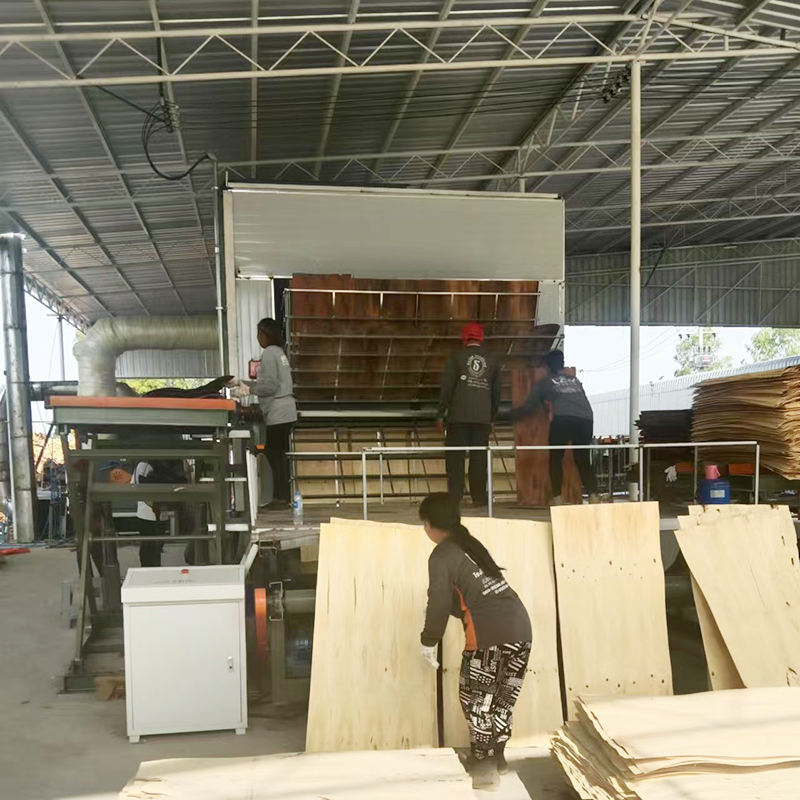
7. After-Sales Service
Many Chinese manufacturers offer:
- Overseas Installation and Commissioning: When the equipment arrives, Chinese technicians will quickly travel to the customer’s site to complete installation and get the machine running as soon as possible. They also provide training for local staff on how to operate, maintain, and repair the machines. For common equipment like rotary peelers, hot presses, and edge saws, installation and commissioning usually take 2–3 days.
- Remote Technical Support: If customers encounter any problems, manufacturers can provide fast solutions remotely to minimize production downtime.
- Fast Spare Parts Supply: Thanks to modular design and a mature supply chain, Chinese manufacturers can quickly provide spare parts whenever customers need them.
Some large exporters even have local agents or service centers in certain countries to make communication and support easier for customers.
8. Rich Export Experience
As one of the world’s largest exporters of plywood machinery, China ships its equipment to over 70 countries and regions, including Asia, Africa, South America, Eastern Europe, and the Middle East.
Chinese manufacturers have extensive export experience and understand the specific needs of different markets. They can customize machines to meet various voltage and frequency standards, as well as adapt to the types of wood and plywood quality levels used in each country.
Summary
China leads the world in plywood machinery production and export. Its machines offer good quality, competitive prices, fast delivery, and strong customization. With advanced technology and solid after-sales support, Chinese equipment is trusted by customers globally.







